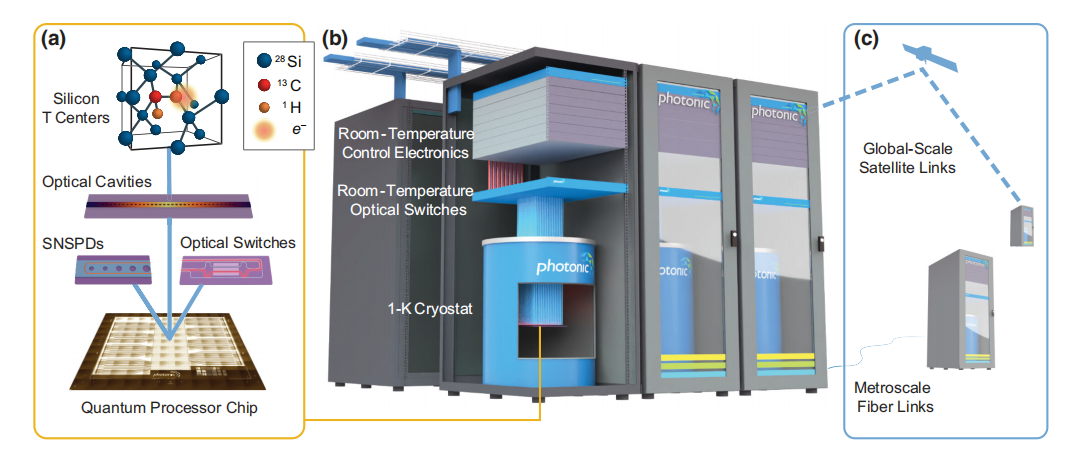
The article presents a perspective on the development of scalable fault-tolerant quantum technologies, focusing on the integration of quantum computing and quantum networking to achieve high-performance, modular, and horizontally scalable systems. This approach addresses the challenges of large-scale quantum systems by combining quantum repeaters with quantum processors, utilizing high-connectivity entanglement distribution to facilitate efficient and scalable quantum networks.
Key points from the paper include:
Scalable Quantum Architecture: The proposed architecture uses silicon-based spin qubits (specifically T centers) and their spin-photon interfaces for modular quantum computing and networking. Silicon T centers offer excellent coherence times and fidelity while directly interfacing with telecom-band photons, which are ideal for long-distance entanglement distribution across quantum networks.
Modular Quantum Processing: The shift from monolithic to modular quantum processors is emphasized, with the potential for quantum computing to scale horizontally through the integration of quantum repeaters. This modularity allows for efficient entanglement distribution and the possibility of building large-scale quantum systems that connect multiple quantum modules, facilitating both computational power and networking capabilities.
Telecom-Based Quantum Networking: The use of telecom photons for quantum communication is crucial for achieving high connectivity in quantum networks. These photons can be routed through existing fiber networks, allowing quantum information to be distributed across long distances with minimal loss. The paper suggests using memory-assisted measurement-device-independent quantum key distribution (MA-MDI QKD) for secure quantum communication.
Quantum Memory and Repeaters: Quantum memories are essential for addressing photon loss and enabling efficient entanglement distribution, crucial for the operation of quantum repeaters. The T centers' long-lived spin states provide a solid foundation for memory qubits, essential for both quantum communication and computing.
Applications of Scalable Quantum Systems: The proposed architecture not only supports fault-tolerant quantum computing but also enables applications such as blind quantum computing and quantum key distribution. The ability to perform quantum computations remotely while keeping the data secure aligns with the growing need for privacy in cloud-based quantum computing.
In conclusion, the paper presents a vision for a unified quantum technology that integrates both quantum computing and networking, underpinned by high-connectivity spin-photon interfaces, such as those provided by silicon T centers. This integrated approach promises to overcome current scalability barriers and unlock the potential for large-scale, fault-tolerant quantum networks and processors.
OMeda (Shanghai Omedasemi Co.,Ltd) was founded in 2021 by 3 doctors with more than 10 years of experience in nanpfabrication. It currently has 15 employees and has rich experience in nanofabrication (coating, lithography, etching, two-photon printing, bonding) and other processes. We support nanofabrication of 4/6/8-inch wafers.